Text
thinking about how when you experience a lot of shame in your formative years (indirectly, directly, as abuse or just as an extant part of your environment) it becomes really difficult to be perceived by other people in general. the mere concept of someone watching me do anything, whether it's a totally normal activity or something unfamiliar of embarrassing, whether I'm working in an excel spreadsheet or being horny on main, it just makes my skin crawl and my brain turn to static because I cannot convince myself that it's okay to be seen and experienced. because to exist is to be ashamed and embarrassed of myself, whether I'm failing at something or not, because my instinctive reaction to anyone commenting on ANYTHING I'm doing is to crawl into a hole and die. it's such a bizarre and dehumanizing feeling to just not be able to exist without constantly thinking about how you are being Perceived. ceaseless watcher give me a god damn break.
#all of that is such truth that it seems fundamental#you showed me s truth like 2 + 2 is 4 and it clicks its so obvious l#why didnt it occur to me myself?#but ive only just realized my mother fucked me up enough that my body responds to thoughts of her like it does to a lifelong phobia of 🕷#sooooo
22K notes
·
View notes
Text
Tumblr is such my safe space.
Bored in public? Tumblr.
High? Tumblr.
Going thru some shit? Tumblr.
#lmao i adore wereralphs text posts#but i scroll tumblr in public too much to follow#because of how often that boy posts porn#=(#my mutuals get horny sometimes#but its varied enough that i can get past it quick otherwise
7K notes
·
View notes
Text
when you're sick you're either a prince moder or a dog moder. prince moding is when you demand many little treats, drinks etc. i personally prefer to drag myself off to a secluded corner to either die or recover, aka dog moding
#as an utter dog in this way#getting a princess treatment during it when a partner decides to try to spoil me does make me feel v3ry loved
4K notes
·
View notes
Text
Ok it's very funny to laugh at Tuxedo Mask for showing up and doing nothing, but his job was never to actually fight the monsters.
His job was just to show up and believe in Sailor Moon so overwhelmingly resolutely that she remembers she's a fucking demigod long enough for HER to fight the monsters.
Because she's the only one strong enough to do it in the first place, and in this regard Tuxedo Mask is the first example of being "Kenough" in this essay I will
38K notes
·
View notes
Text
All that being said you could argue that *because* that is like, literally The Spirals thing, that's why the other monsters are so straight forward with their wants/desires/plans because... they don't belong to the spiral.
i wanna talk about tma characters and the concept of a facade. because i have a lot of thoughts.
so most people understand how ironic it is to characterize martin blackwood as a soft boy that can do no wrong, because one of the most interesting parts of his character is how much of a subversion of that trope he is. he's manipulating people by acting like that. this is addressed in the canon. he wants everyone to like him, and he knows he'll almost always get what he wants if he puts up this facade.
something people talk about a bit less, but is still equally canon, is that gertrude robinson was doing basically the same thing. pretending to be just a boring old woman, when she's actually extremely clever and ruthless. she plays into everyone's pre-existing biases and assumptions masterfully to hide just how competent she really is. she knows exactly what she's doing, and she's willing to sacrifice anything and anyone for the sake of her self-appointed mission. characterizing her as a grandmother figure is the funniest form of irony to me.
but do you know who isn't putting up a facade? do you know who isn't changing their behavior to affect your idea of them?
the older avatars.
peter lukas isn't pretending to be passive-aggressive and overly cheery, he just kind of...is. why would he ever bother putting up a facade? he doesn't want people to like him. his authentic self is this talkative yet asocial man, who specifically aims to be awkward and unlikeable.
people say that simon fairchild's polite and carefree demeanor is an act, but i really don't think that's true either. i guess i might see it differently because i personally resonate the most with the vast out of all the fears, but i really think that a lot of that behavior makes perfect sense for his character. he doesn't think that anything in life matters. his personality reflects the lightness and carefree nature of that mindset. he just doesn't care. he does everything for fun. he's not pretending to be anything he isn't.
this could be me reaching, but honestly, i don't think even jonah magnus is putting up that much of a facade. he's lying, sure. he's manipulating people, obviously. but he's not changing his behavior in order to do that. even in mag 160, there's no big, henry mildmay-esque "dropping of the act" when he has his monologue. if you look at his behavior as elias bouchard, it's exactly the same as the little bits of him that we get to see in s5. the elias whose last words are "good luck" is the exact same elias as the one who always greeted basira with "hello, detective".
humans put up an act. monsters don't bother to.
#as someone whos autistic and also has ADHD#i relate to a LOT of the fears but a big one is the spiral#i can never tell how someone feels about me and im not great at seeinf the discrepancies#also the mental illness bit
470 notes
·
View notes
Text
But we have a fear, and avatars that DO fill that though.
The spiral. False friendships.
You can argue it's Canon that Michael was sacrificed by the spiral for Helen specifically because he allowed himself to feel too strongly and too straightforwardly - he comes out and gives his whole backstory about how Gert tricked him with her facade (which is why he's so miffed at the Archivist as a position)
i wanna talk about tma characters and the concept of a facade. because i have a lot of thoughts.
so most people understand how ironic it is to characterize martin blackwood as a soft boy that can do no wrong, because one of the most interesting parts of his character is how much of a subversion of that trope he is. he's manipulating people by acting like that. this is addressed in the canon. he wants everyone to like him, and he knows he'll almost always get what he wants if he puts up this facade.
something people talk about a bit less, but is still equally canon, is that gertrude robinson was doing basically the same thing. pretending to be just a boring old woman, when she's actually extremely clever and ruthless. she plays into everyone's pre-existing biases and assumptions masterfully to hide just how competent she really is. she knows exactly what she's doing, and she's willing to sacrifice anything and anyone for the sake of her self-appointed mission. characterizing her as a grandmother figure is the funniest form of irony to me.
but do you know who isn't putting up a facade? do you know who isn't changing their behavior to affect your idea of them?
the older avatars.
peter lukas isn't pretending to be passive-aggressive and overly cheery, he just kind of...is. why would he ever bother putting up a facade? he doesn't want people to like him. his authentic self is this talkative yet asocial man, who specifically aims to be awkward and unlikeable.
people say that simon fairchild's polite and carefree demeanor is an act, but i really don't think that's true either. i guess i might see it differently because i personally resonate the most with the vast out of all the fears, but i really think that a lot of that behavior makes perfect sense for his character. he doesn't think that anything in life matters. his personality reflects the lightness and carefree nature of that mindset. he just doesn't care. he does everything for fun. he's not pretending to be anything he isn't.
this could be me reaching, but honestly, i don't think even jonah magnus is putting up that much of a facade. he's lying, sure. he's manipulating people, obviously. but he's not changing his behavior in order to do that. even in mag 160, there's no big, henry mildmay-esque "dropping of the act" when he has his monologue. if you look at his behavior as elias bouchard, it's exactly the same as the little bits of him that we get to see in s5. the elias whose last words are "good luck" is the exact same elias as the one who always greeted basira with "hello, detective".
humans put up an act. monsters don't bother to.
470 notes
·
View notes
Text
Hey btw, if you're doing worldbuilding on something, and you're scared of writing ~unrealistic~ things into it out of fear that it'll sound lazy and ripped-out-of-your-ass, but you also don't want to do all the back-breaking research on coming up with depressingly boring, but practical and ~realistic~ solutions, have a rule:
Just give the thing two layers of explanation. One to explain the specific problem, and another one explaining the explanation. Have an example:
Plot hole 1: If the vampires can't stand daylight, why couldn't they just move around underground?
Solution 1: They can't go underground, the sewer system of the city is full of giant alligators who would eat them.
Well, that's a very quick and simple explanation, which sure opens up additional questions.
Plot hole 2: How and why the fuck are there alligators in the sewers? How do they survive, what do they eat down there when there's no vampires?
Solution 2: The nuns of the Underground Monastery feed and take care of them as a part of their sacred duties.
It takes exactly two layers to create an illusion that every question has an answer - that it's just turtles all the way down. And if you're lucky, you might even find that the second question's answer loops right back into the first one, filling up the plot hole entirely:
Plot hole 3: Who the fuck are the sewer nuns and what's their point and purpose?
Solution 3: The sewer nuns live underground in order to feed the alligators, in order to make sure that the vampires don't try to move around via the sewer system.
When you're just making things up, you don't need to have an answer for everything - just two layers is enough to create the illusion of infinite depth. Answer the question that looms behind the answer of the first question, and a normal reader won't bother to dig around for a 3rd question.
104K notes
·
View notes
Text
re: that last post, ive said it before and ill say it again: no one deserves to die (deserving is fake and death is bad) but some people need to be stopped and choose to make death the only way to stop them
49K notes
·
View notes
Text
We respect ALL work boots in this house.

133K notes
·
View notes
Text
IG : @emperorofmischief
44K notes
·
View notes
Text
There's this really great video on YouTube that breaks down the minor differences in the play versus movie - the movie lessens all of the Faustian impacts of the musical. Take for instance musical Seymour outright going to Orin to kill him versus movie Seymour only committing to feeding Audrey 2 Orin after he dies.
I think it's this one:
https://youtu.be/u2YdOXddFoQ?si=xdxT_jju8zkyfDhz
I had a very interesting discussion about theater and film the other day. My parents and I were talking about Little Shop of Horrors and, specifically, about the ending of the musical versus the ending of the (1986) movie. In the musical, the story ends with the main characters getting eaten by the plant and everybody dying. The movie was originally going to end the same way, but audience reactions were so negative that they were forced to shoot a happy ending where the plant is destroyed and the main characters survive. Frank Oz, who directed the movie, later said something I think is very interesting:
I learned a lesson: in a stage play, you kill the leads and they come out for a bow — in a movie, they don’t come out for a bow, they’re dead. They’re gone and so the audience lost the people they loved, as opposed to the theater audience where they knew the two people who played Audrey and Seymour were still alive. They loved those people, and they hated us for it.
That’s a real gem of a thought in and of itself, a really interesting consequence of the fact that theater is alive in a way that film isn’t. A stage play always ends with a tangible reminder that it’s all just fiction, just a performance, and this serves to gently return the audience to the real world. Movies don’t have that, which really changes the way you’re affected by the story’s conclusion. Neat!
But here’s what’s really cool: I asked my dad (who is a dramaturge) what he had to say about it, and he pointed out that there is actually an equivalent technique in film: the blooper reel. When a movie plays bloopers while the credits are rolling, it’s accomplishing the exact same thing: it reminds you that the characters are actually just played by actors, who are alive and well and probably having a lot of fun, even if the fictional characters suffered. How cool is that!?
Now I’m really fascinated by the possibility of using bloopers to lessen the impact of a tragic ending in a tragicomedy…
57K notes
·
View notes
Text
"Not beating the ___ allegations" is such a 'now' turn of phrase, implying as it does a world where everyone's behavior is always on literal trial by a guilt-presuming judge and jury that consists of anyone who happens to be paying attention.
46K notes
·
View notes
Text




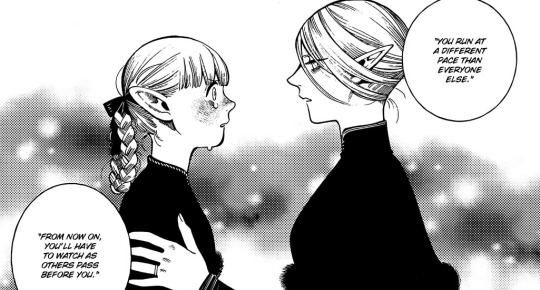

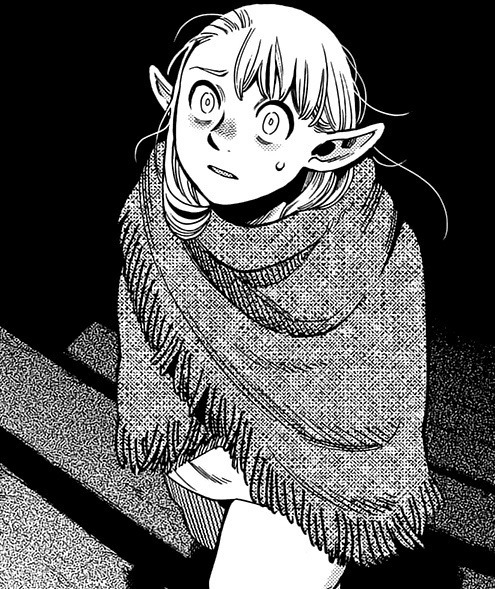




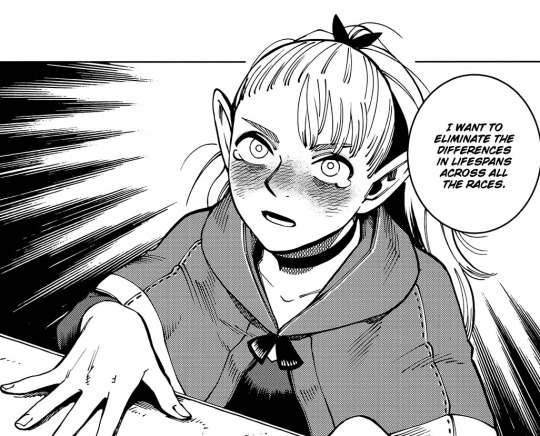
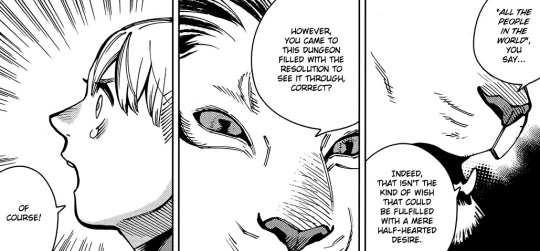
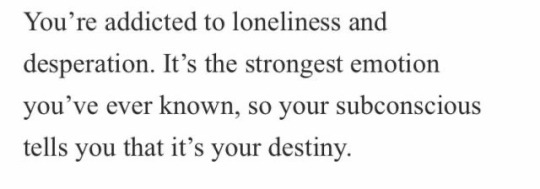
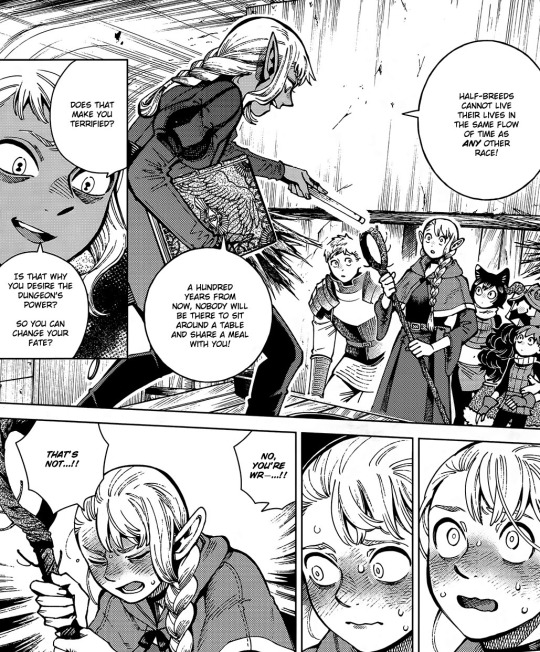

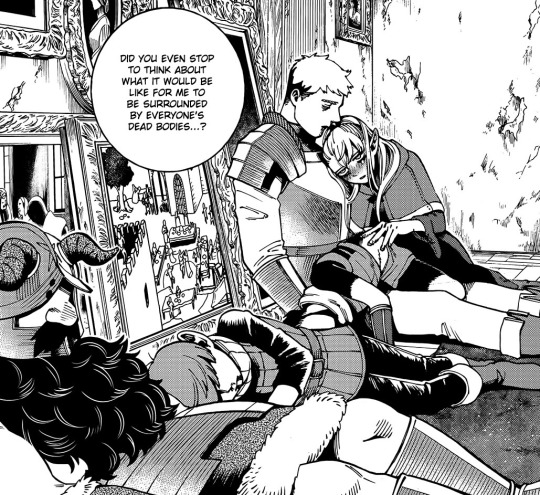

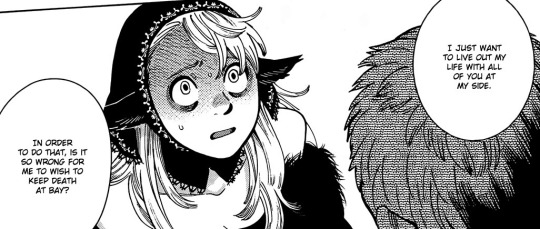

Doomed from the beginning
Unknown / Marguerite Duras / Blanca Varela / Ramona Ausubel / Anne Carson / Heather Havrilesky / Michael Cunningham / Lisel Mueller / Richard Siken x Dungeon Meshi by Ryoko Kui
5K notes
·
View notes
Text

The fact that homelessness is controversial tells you everything you need to know about conservatives.
22K notes
·
View notes

